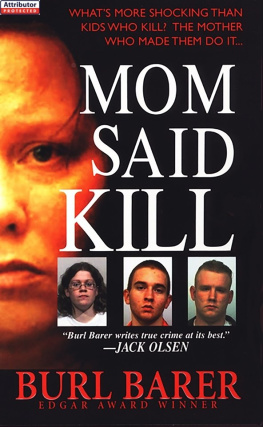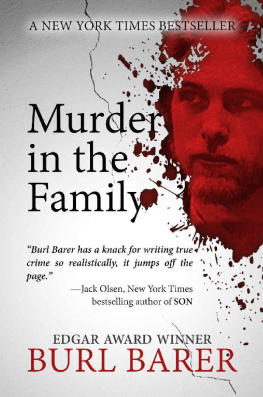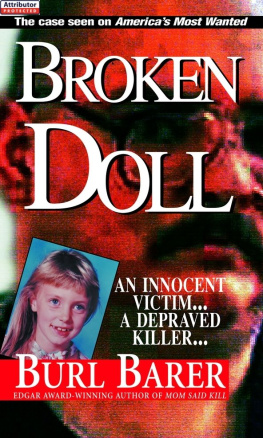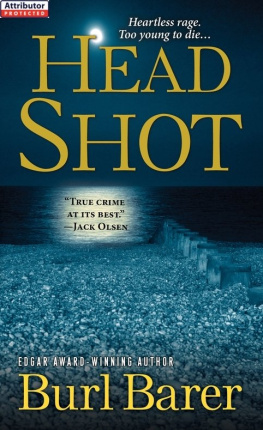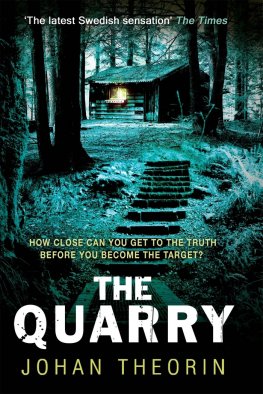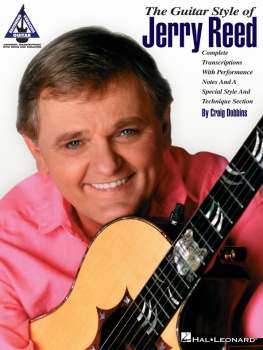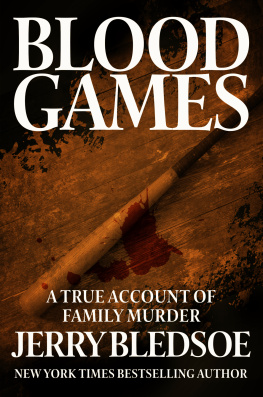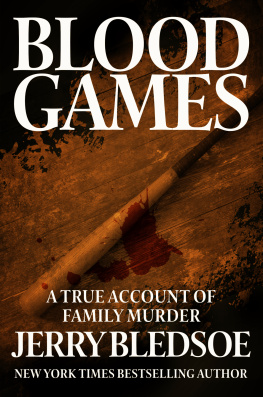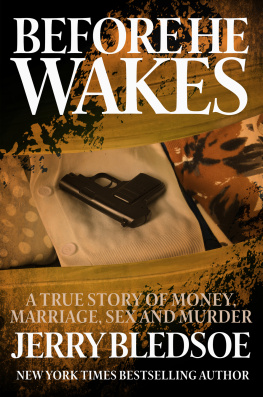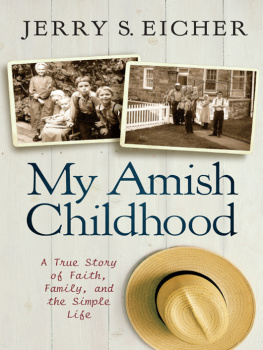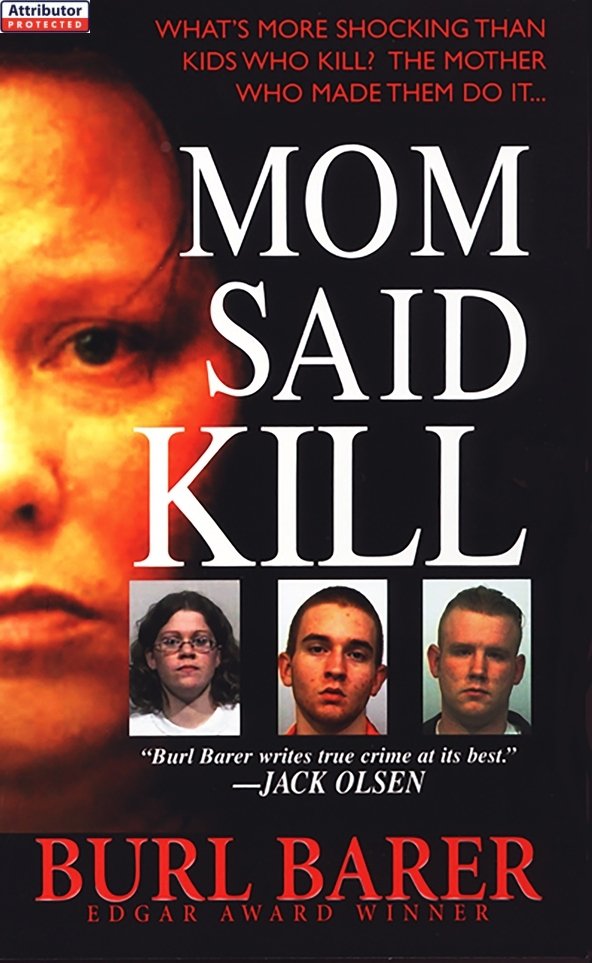EPILOGUE
Barbara Opels daughter Heather, the bright child with unlimited potential, is a convicted killer with many years of incarceration ahead of her. There are programs within the Department of Corrections that may help her come to grips with the reality of what happened to her life, and the life of Jerry Heimann.
Theres a lotta, lotta, lotta time to think, said Heather Opel. I try to think about the future. I still want to go to college. Im not sure what I want to do. I like hands-on stuff, so maybe Ill be a veterinarian. Maybe Ill be a lawyer, because then I could help kids in my situation.
She still keeps in touch with old friends from school, but time divides old chums whose only affinities are shared memories of softball victories and basketball play-offs. When old friends have told her theyre having fun, Heather has replied, Dont tell me that. I dont want to know.
As with most long-term prisoners whose lives on earth have become hell, she seeks solace in the comforting structure and support of established religious systems. A priest helped her study Catholicism.
If she devotes one hour a day to the study of any topic, commented Jeff Reynolds, she will be an expert. Thats what it takes. Most people dont spend an hour a day studying anything.
I love to read, said Heather. I especially like John Grisham novels. You know, books that are suspenseful, that grab you. Self-penned poetry in iambic pentameter is the perfect prison pastime, and there is plenty of time to pass. I do count the days, she admitted.
I always wanted to be famous, said Heather Opel, and be in the newspaper and on TV and stuff, but not like this. I guess my wish did come true, but it had a bad ending to it. Id give up my life right now for Jerry to come back, I seriously would.
Peter Grassi decided to give up his long-standing position as a detective with the Major Crimes Unit. I saw too many dead people. When you dedicate yourself to finding out who took someones life, you have no life of your own. Murderers dont work nine to five, and neither do homicide detectives. After enough years, you decide you want to have a life with your family and friends. Grassi, now an investigator, heads the Everett Police Department Office of Professional Standards (OPS). A relationship of trust and confidence between the police and the public is of critical importance, explained Grassi. The police department must demonstrate a willingness and ability to address any allegations of misconduct made against its employees in a fair, consistent, and timely manner, and that is exactly why the Office of Professional Standards was established.
The primary function of OPS is to conduct and coordinate the activities and duties associated with internal investigations, citizen complaints, use-of-force applications, and damage to city-owned police property. Fortunately for both the public and the police, citizen complaints and problematic internal investigations are minimal.
Although still with the Everett Police Department, Joe Neussendorfer also decided to forego the sleepless nights and exceptional stress of the Major Crimes Unit.
Chris Dickinson and George Appel remain with the Snohomish County Prosecutors Office, dedicated to the pursuit of justice on behalf of the citizens of Snohomish County. Peter Mazzone and Brian Phillips continue offering their clients the best defense possible, as required by their professional code of ethics.
Judge Charles French, who declined juvenile jurisdiction over Heather Opel, Kyle Boston, Marriam Oliver, and Jeff Grote, was stricken by lung cancer in 2002. French treated his illness as an inconvenience and kept working until shortly before his death in June 2004. He was fifty-three.
Our opinionated trio of true crime commentatorsTony Stevens, Fred Wolfson, and Jeff Reynoldspaid their bill at Dennys, stepped out into the crisp night air, and went their separate ways. Stevens, a fixture at Everetts KRKO for over a decade, hung up his headphones and opened Tony Stevens Advertising. Fred Wolfson, PI, returned to his star-studded client roster in Hollywood. Jeff Reynolds offered his companions one parting comment before firing up the engine of his pristine 72 Volvo 1800E. Someone should write a book about this case, he said. I can tell you right now how it ends. In fact, Ill provide the last line.
Heather never got the dirt bike.
AFTERWORD
Jerry Heimann knew cancer was taking his life. There wasnt much time left. His daily regimen consisted of dulling the pain and clutching at whatever moments of happiness remained.
In this time of personal finality, he made decisions. If there was anything he could do that was truly meritorious, selfless, and honorable, it was to care for, comfort, and outlive his elderly mother. This was his goal, his concern, his choice. Foregoing treatment, he allocated his full financial resources to keeping his mother comfortable and close.
Sitting speechless and helpless in her wheelchair, she watched him beaten to death in a frenzy of insane violencea brutal murder orchestrated with clumsy irrationality by her trusted live-in caregiver, Barbara Opel.
At Barbara Opels trial for aggravated first-degree murder, the prosecutors said it was about money. The defense said it was about Opels daughter Heather. The judge said he believed it was all about Barbara Opel. Everything has always been about Barbara Opel.
This book is not all about Barbara Opel, Heather Opel, or the innocent victim, Jerry Heimann. It is, hopefully, about far more than this tragic murder and the myriad victims and participants. In fact, there isnt too much information about Jerry Heimann beyond the basics of his one-paragraph obituary. He lived, he was married a few times, he was an outgoing guy who made and kept friends easily. He had kids and grandkids, who loved him, and he loved them. Jerry Heimann died of a different kind of cancera cancer of detached, remorseless violence. He died for reasons so absurd, irrational, and inexplicable, that it is impossible to make any sense of his death. It is not impossible, however, to elevate his death to the level of sacrifice.
Jerry Heimann saw the good in people, and overlooked their faults. He opened his home, heart, and bank account to the wrong person. And even when there were clear indications that Barbara Opel was a danger to him, he did nothing to protect himself.
Perhaps he believed that the higher moral good always prevails, or that just as long as his mother was happy, his situation didnt really matter. Then again, Jerry might have had his own timetable for removing Barbara and her brood. Like the cancer that took residence in his body, Barbara Opel took residence in his home and relentlessly plotted his demise.
I was living in Everett when Jerry Heimann was murdered. Two years later, like Jerry Heimann, I took someone into my home to help out. Driven by the same greedy motive as Barbara Opel, this person plotted darkly against me. That individual is also in prison for life. The major difference between our stories is that Im alive and Jerry Heimann is dead. I survived; Jerry didnt.
When I read of Jerry Heimanns death, and the circumstances surrounding it, I brought the story to my editor, Michaela Hamilton, at Pinnacle True Crime. Thankfully, she endorsed the project and we went to work.
As with my previous books in the Pinnacle True Crime series, Mom Said Kill is my particular version of events adapted from police records, trial transcripts, and personal interviews as recalled from memory. For purposes of clarity, readability, and understanding, some testimonies, statements, and descriptions have been modified. There were numerous conflicting testimonies and depositions of what actually transpired the night Jerry Heimann was murdered. I have not fictionalized the story. Rather, Ive attempted to portray the diverse perspectives of those involved. Any errors of fact or appearance of bias are unintentional.

